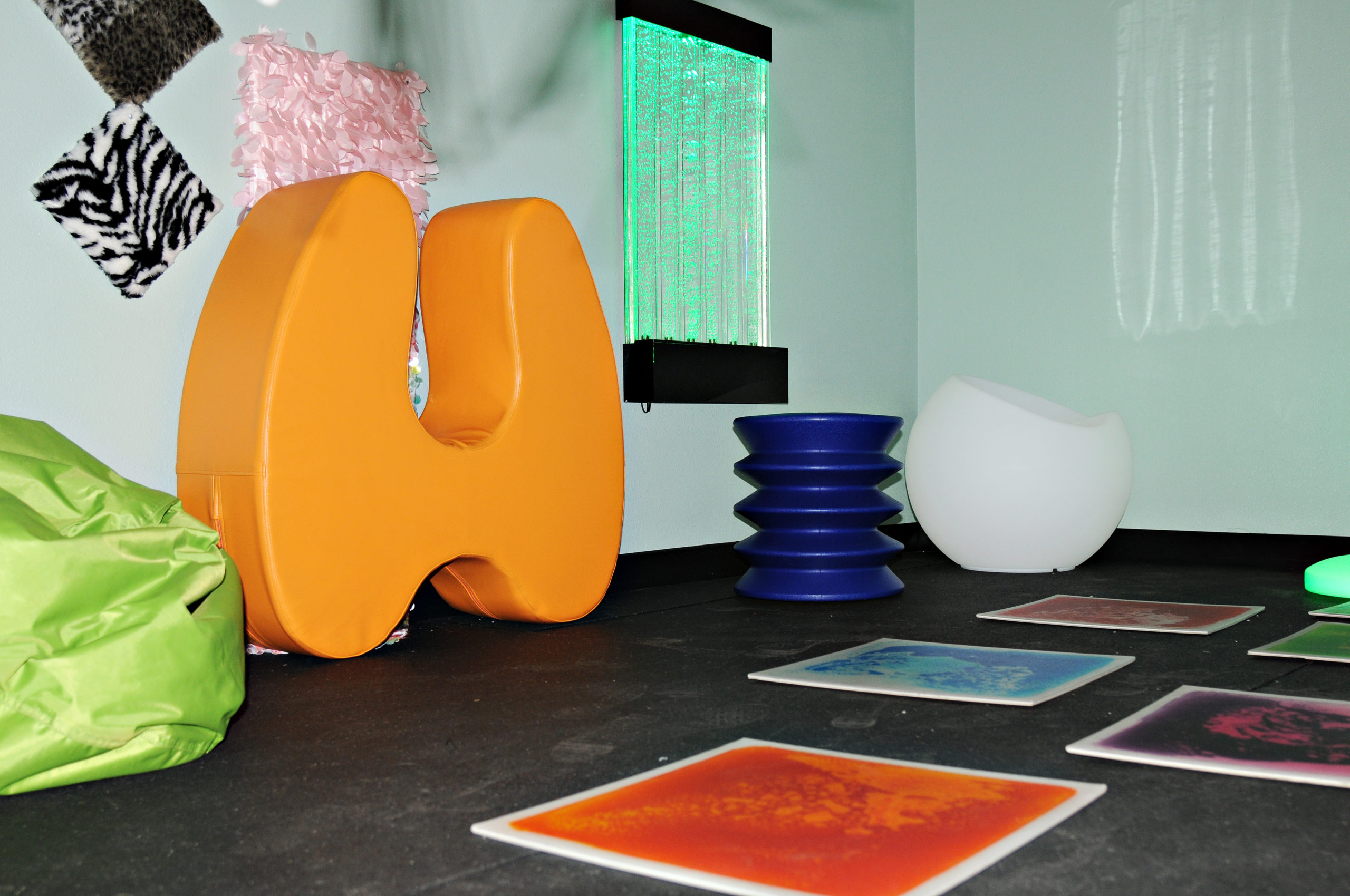

by Kathryn Millhorn • Photos by Heather Harris, Elements Photography
Globally, it’s estimated that 30 to 40% of people are neurodiverse. Though the term itself was coined in the 1990’s, it’s not a new concept. Just as no two people are the same, we don’t all interact with the world in the same way. If you or someone you love thrives with sensory or adaptive support, schedule a visit to Lacey’s Sensory Tool House.
Harvard doctors explain that “The word neurodiversity refers to the diversity of all people, but it is often used in the context of autism spectrum disorder (ASD), as well as other neurological or developmental conditions such as ADHD or learning disabilities…Neurodiversity describes the idea that people experience and interact with the world around them in many different ways; there is no one ‘right’ way of thinking, learning, and behaving, and differences are not viewed as deficits.”




She opened Sensory Tool House to take trial-and-error out of online shopping. “The neurodivergent community, those who are disabled, and caregivers often have challenges finding items for improved quality of life,” admits McMurray. “When buying on the internet, there can be one hundred similar items for one product. A person who has anxiety, a longer thought processing time, difficulty making decisions, and other barriers can become overwhelmed.”
This is where shopping in person makes a world of difference. Unlike a bustling box store, Sensory Tool House was thoughtfully designed and carefully decorated. “The wall colors, floor layout and lighting are all done from research in autistic architecture and sensory sensitive spaces,” says McMurray. “Florescent lighting can be painful to those who are light sensitive. These lights flash in a way many of us cannot see. That flash is overwhelming and can cause emotional and physical pain. Most commercial and school buildings have this lighting. Even the way we laid the tile lines on the floor was with purpose. These are some of the details we have to mitigate as many barriers as possible.”
Eliminating barriers is important because McMurray hopes Sensory Tool House will become a gathering place for those wanting somewhere to meet, hold small events and parties, or just relax in a peaceful setting. “We are a retail store, but more than that, we are an inclusive community gathering space where our neurodiverse community can try before they buy and connect with others like themselves. If a weighted vest is of interest, you can wear it around the store for as long as needed to determine its benefit for you. Fidgets all feel different, and you can try them. Sensory swings are available to test or just regulate with. Aside from retail, we have a community room where we have a variety of classes and groups for all.”


A teacher herself, McMurray loves working with the community to develop sensory safe spaces or find tools to help students and staff. She also works with civic groups to inform and educate. She is “excited that the Thurston County Chamber of Commerce is taking steps to be more inclusive and discussing how programs like Math for Life can welcome those who have developmental delays. I want to see businesses changing out florescent lighting to LED lights, installing adult changing tables. Ultimately, I would like to see Thurston County become a sensory friendly community.”


If you or someone you love would enjoy visiting Sensory Tool House, reach out today. “We want people to connect with us in the most comfortable way for them. Facebook and Instagram, email information@sensorytoolhouse.com, website contact form, calling 360-915-9457 or just stopping by all work for us,” says McMurray. They are located at 5831 Lacey Boulevard SE, Suite J. Or shop online knowing their return policy and Buy Back program mean zero stress.
Other News
Upcoming Events
Picture your ad here!


Both rectangle and banner ad spaces are available for members. Download our sizes and pricing sheet for more information by clicking the button below.
